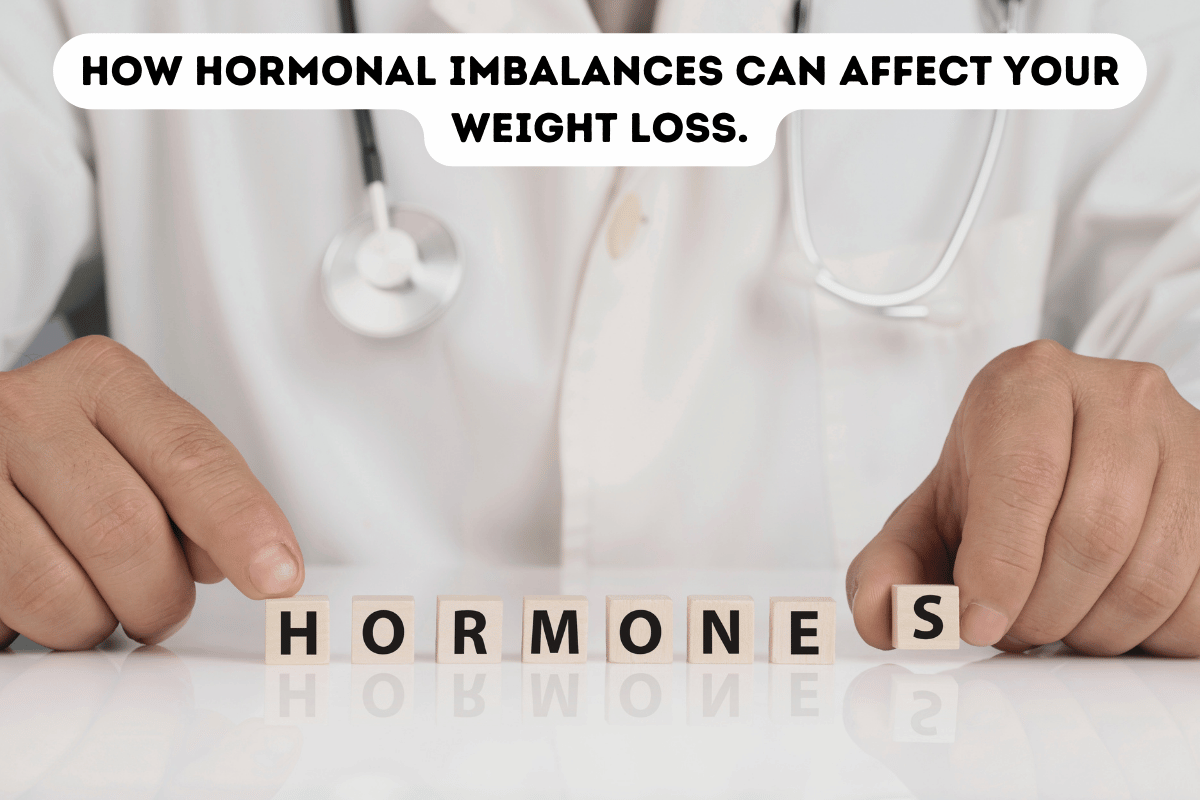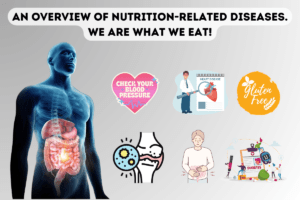Many personal trainers and nutrition advisors will tell you that, regardless of your diet, the fundamental principle for weight loss is creating a calorie deficit – burning more calories than you consume. More about this principle you can read in my article: “The secret of all diets”. However, it’s not always that simple. Even if you eat less and exercise more, weight loss may still be tricky. This is because weight gain can be caused not only by poor eating habits and lack of exercise but also by health issues such as hormonal imbalances.
What Are Hormones?
Hormones are particular signaling molecules secreted into the blood, carrying messages to different tissues and organs. They are produced by endocrine glands in the body, such as the thyroid, adrenal glands, pancreas, testes, and ovaries. Hormones play a role in various aspects of health, including sexual health, growth and development, metabolism and appetite, and mood regulation. An imbalance in these hormones causes the body to produce too little or too much of them, which can affect health, including weight. Hormone disorders can be diagnosed with laboratory tests such as blood and urine tests. Therefore, in your weight loss efforts, it is important not only to work with fitness professionals and follow specific diets and exercises but also to consult with a doctor to address any possible underlying medical conditions. Now, let’s explore the main endocrine glands and how their disruption can impact weight loss.
The main endocrine glands that can impact your weight loss.
Cortisol. Experts say that ninety per cent of the time, the main hormone that can be out of balance is cortisol. It is a stress hormone produced by the adrenal glands and is also called the “fight-or-flight” hormone. Our ancestors needed this hormone to survive. For example, in a dangerous situation, cortisol levels and adrenalin would rise, which would help you run faster, see better, and simply fight for your life. Now, when life is less dangerous, we don’t always have to fight for survival. This should decrease the production of cortisol levels. Still, unfortunately, our brain doesn’t see the difference between a life-frightening situation or a stressful job that requires multitasking and produces the same amount of cortisol. These are entirely normal in a short period, but when we have prolonged stress, these create a problem. Prolonged stress on the body can affect our high blood sugar (which can lead to insulin resistance), increase our belly fat, and create high blood pressure, high cholesterol, muscle loss and weight gain. Also, because of heavy stress, our body can start producing less cortisol, leading to another condition called adrenal fatigue, which causes a chronically sluggish metabolism.
So, if you are constantly feeling stressed, it can create a lot of problems for you, including weight gain. Eliminating stress is probably impossible, but you can reduce it with meditation or yoga and different psychological techniques. Going for a walk or simply jogging and managing your sleep can also help fight your stress. If these don’t help, you can try some herbal supplements and, in the worst case – medication. About medication, you need to consult your doctor.
Insulin. Insulin is a hormone that manages our blood sugar levels. It is produced and stored in the pancreas. Consuming too many calories, especially from carbohydrates, triggers an insulin response. When carbohydrates are broken down to simple sugars by our digestive system, the pancreas senses sugar and releases insulin into the bloodstream. Next, insulin takes sugar to the muscles and other cells where necessary. Unneeded calories and sugar are converted into body fat. In other words, eating too many carbs and not burning them causes fat production.
Over time, if you constantly overeat carbs, your cells start to ignore insulin and your body is forced to produce more insulin to have the same effect on body cells. With time, you can get insulin resistance (type 2 diabetes) when body cells stop responding effectively to insulin. Type 2 diabetes can lead to blood clots, strokes, heart attacks and kidney failures. Type 2 diabetes may require medication to restore insulin resistance (you should consult with your doctor). To manage your insulin as low as possible, you must keep carbohydrates to a minimum (especially sugar). Eating less carbs will help you reduce insulin and body fat. Regular exercise will also help you reduce insulin levels. Try to move more by doing more walking, running, or biking. Lastly, improve the quality of your sleep.
Thyroid. The thyroid gland is located in the lower front of the neck. Its job is to produce hormones that help regulate metabolism– converting food into energy. Thyroid hormones are called triiodothyronine (T3) and thyroxine (T4). When the thyroid doesn’t produce enough of these hormones, many of the body’s functions slow down, leading to weight gain.
When the thyroid does not produce enough hormones (Hypothyroidism), the simple weight loss strategy of eating less and exercising more stops working. You can eat the right foods and exercise enough, but if the thyroid is not functioning properly, you won’t lose any body fat. To start losing weight, you need to fix your thyroid first. An underactive thyroid is most often caused by the immune system attacking and damaging the thyroid gland. This condition is called Hashimoto’s disease. Hypothyroidism can also occur because of a lack of iodine in the diet, but it is less common in the UK. To determine the health of your thyroid, you can perform a simple blood test to measure your hormone levels. An underactive thyroid is usually treated by taking hormone replacement tablets, which the doctor can prescribe.
Testosterone. As to testosterone, it is produced by the testicles in men and ovaries in women. It is mainly responsible for male characteristics but is essential for women too. One of the most important functions of testosterone for both women and men is maintaining muscle mass, growth of muscle mass and bone strength. Muscles burn more calories than fat tissue, so a lack of muscles can put you at risk of storing more calories instead of burning them. And this promotes fat gain. Also, testosterone helps to control insulin resistance. Lack of testosterone can be caused by obesity, alcoholism, and age.
Also, men must know that belly fat increases your risk to have lower testosterone levels. Belly fat has high levels of the enzyme aromatase, which converts testosterone into estrogen, the female sex hormone. So, men must know that testosterone can be converted to estrogen, and belly fat is the main reason. You can increase your testosterone naturally by strength training, taking vitamin D supplements, getting enough zinc, improving the quality of your sleep, and trying to minimize stress.
Estrogen. Problems with estrogen levels are more common for women. Levels of this hormone change during life stages such as pregnancy, nursing, and menopause, as well as throughout the menstrual cycle. When women enter their forties, they begin their transition into menopause. During menopause, estrogen production declines, and the body starts looking for other sources of estrogen and finds them in a fat cell. A woman’s body converts more calories into fat to have more estrogen in the system. Reduced estrogen levels, like testosterone, also cause muscle mass to decline, and as a result, we are getting more fat in the body. Women should look after their body weight, exercise regularly, and eat a balanced diet to maintain healthy estrogen levels.
Leptin and Ghrelin. Leptin is a hormone which is responsible for fullness. This hormone tells your brain that you are full (regulates your appetite). Especially people with obesity may have leptin resistance. This means that the message to stop eating doesn’t reach your brain, and you end up overeating, creating fat gain. As to Ghrelin, it is the opposite of leptin. Ghrelin is a hunger hormone that sends a message to your brain that you are hungry. The primary function is to increase the appetite. And again, because of obesity, your sensitivity to Ghrelin can increase, which will increase appetite, overeating and weight gain. To improve your leptin and ghrelin levels, you need to make a few lifestyle changes. First, try to maintain a healthy weight. Obesity can cause problems with leptin and Ghrelin. Next, improve your quality of sleep, and don’t forget to exercise.
Conclusion:
The main secret of all diets, if your goal is to lose weight, is calorie deficit. To be in a calorie deficit, you have to burn more calories than you consume. This is the rule, and it works. But as with all rules, there is always an exception. If you are following a calorie-restrictive diet, like I wrote in my article “The secret to all diets”,” but still can’t lose weight, then you probably have some issues with your endocrine glands. The main hormones you must check are cortisol, insulin, testosterone, estrogen, leptin, and Ghrelin. You can check your hormone levels with a doctor in the laboratory using different tests, such as blood and urine tests. If you have hormone imbalances, don’t rush to treat them with medication straight away. Try more natural ways.
If you have high cortisol levels, try managing your stress. Activities like walking, jogging, and improving the quality of your sleep can help. You can also try some yoga or different psychological techniques. To manage your insulin as low as possible, try to keep carbohydrates to a minimum (especially sugar), exercise more regularly, be more active during the day, and improve your sleep quality. For your thyroid, increase the amount of iodine in your diet. To increase testosterone naturally, do more strength training, take vitamin D supplements, get enough Zinc, minimize stress, and improve sleep quality.
The same rules apply for other hormones. As you can see, rules are pretty much the same. If the natural way of improving your hormonal levels doesn’t work, then you have to consult with your doctor about the medication you need to take. But don’t rely just on medication. Don’t forget to practice a natural way of controlling your hormonal levels as well. All in all, this article aimed to show you how important it is to have the proper hormone balance in your body and how different hormone imbalances can affect your attempts to lose weight. If you are interested in such material, I suggest you to read my article about hormonal Body types: “5 Body types according to Dr Eric Berg”.




